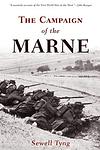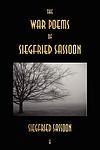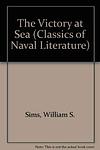The Greatest "History, World War I" Books of All Time
Click to learn how this list is calculated.
This list represents a comprehensive and trusted collection of the greatest books. Developed through a specialized algorithm, it brings together 300 'best of' book lists to form a definitive guide to the world's most acclaimed books. For those interested in how these books are chosen, additional details can be found on the rankings page.
Genres
The category of "History" in books refers to the study and interpretation of past events, societies, and cultures. It encompasses a wide range of topics, including political, social, economic, and cultural developments, as well as the lives of individuals and groups who have shaped the course of history. History books can be written from various perspectives and may focus on specific time periods, regions, or themes. They aim to provide readers with a deeper understanding of the past and its impact on the present.
Countries
Date Range
Reading Statistics
Click the button below to see how many of these books you've read!
Download
If you're interested in downloading this list as a CSV file for use in a spreadsheet application, you can easily do so by clicking the button below. Please note that to ensure a manageable file size and faster download, the CSV will include details for only the first 500 books.
Download-
1. The Guns of August by Barbara Tuchman
"The Guns of August" is a detailed and engaging account of the first month of World War I. The book explores the events leading up to the war, the political and military strategies of the various countries involved, and the critical decisions that shaped the course of the conflict. It presents a vivid picture of the war's early stages, highlighting the miscalculations, miscommunications, and misunderstandings that led to one of the most devastating wars in history.
-
2. The Great War and Modern Memory by Paul Fussell
"The Great War and Modern Memory" is a critical analysis of the impact of World War I on the English society and culture. The author explores the war's influence on literature, language, and symbolism, arguing that the horrific experiences of the war drastically altered public perception and understanding of conflict, honor, and heroism. The book combines literary criticism, history, and social commentary to provide a comprehensive examination of the war's lasting effects on the collective memory of the English-speaking world.
-
3. The Face of Battle by John Keegan
"The Face of Battle" is a military history book that examines warfare from the perspective of the common soldier. It explores three significant battles in detail - the Battle of Agincourt in 1415, the Battle of Waterloo in 1815, and the Battle of the Somme in 1916. By focusing on the experiences of the individual soldiers, the book provides readers with a unique insight into the reality of war, the strategies employed, the conditions faced by soldiers, the impact of technological advancements on warfare, and the human cost of these historic battles.
-
4. The Campaign of the Marne by Sewell Tyng
"The Campaign of the Marne" is a detailed account of the crucial battle that took place during the early stages of World War I. The book provides an in-depth analysis of the strategies, tactics, and decisions made by both the Allies and the German forces. It sheds light on the significant impact of the battle, which halted the German advance into France and marked a turning point in the war. The author also explores the larger political and social context of the war, offering a comprehensive understanding of this critical historical event.
-
5. War Poems of Siegfried Sassoon by Siegfried Sassoon
The book is a collection of poetry that vividly depicts the harsh realities of war. Written by a soldier who served during World War I, the poems capture the grim and brutal experiences of combat, providing a stark contrast to the romanticized notions of warfare. The author's vivid imagery and emotive language provide a powerful commentary on the futility and horror of war, making it a significant contribution to war literature.
-
6. My Life by Leon Trotsky
This autobiography provides a detailed account of the life of a prominent Russian revolutionary and Marxist theorist. The book traces his early life, education, and political development, his role in the Russian Revolution and Civil War, his leadership of the Red Army, and his expulsion from the Communist Party and subsequent exile. It offers a unique perspective on key events in 20th-century history and an insight into the author's complex personality and intellectual development.
-
7. War by Margaret MacMillan
"War" by Margaret MacMillan is a comprehensive analysis of the causes, conduct, and consequences of war throughout history. Drawing on a vast range of sources, including personal accounts, political documents, and military strategy, MacMillan explores the human motivations behind war and the complex web of political, economic, and social factors that drive nations to conflict. She examines the impact of war on individuals and societies, from the trauma of soldiers on the front lines to the far-reaching political and economic consequences of global conflicts. Ultimately, MacMillan argues that war is a deeply human phenomenon, shaped by the complex interplay of individual and collective desires, fears, and ambitions.
-
8. Unfinished Business by Stephen Bonsal
"Unfinished Business" is a historical account of the author's experiences and observations as a diplomat and journalist in the early 20th century. It provides an in-depth look at the political climate during that time, including the Spanish-American War, the Russo-Japanese War, and World War I. The author shares his personal insights and interactions with key figures of the era, offering readers a unique perspective on the events that shaped the world during this tumultuous time.
-
9. The Coming of the War, 1914 by Bernadotte E. Schmitt
"The Coming of the War, 1914" is a comprehensive historical analysis of the factors and events that led to the outbreak of World War I. The author meticulously details the geopolitical tensions, alliances, and conflicts among the European powers in the early 20th century. The book also delves into the roles of key figures and nations, providing a thorough understanding of the complex circumstances that culminated in one of history's most devastating wars.
-
10. The Victory at Sea by William Sowden Sims
"The Victory at Sea" is a detailed account of naval operations during World War I, written by a high-ranking naval officer who was deeply involved in the events. The book offers a comprehensive look at the strategies, tactics, and logistics that led to Allied success in the war, as well as the challenges faced by the naval forces. It also provides an insider's perspective on the political and diplomatic maneuverings that shaped the course of the war.
-
11. A Prince of Our Disorder: The Life of T E. Lawrence by John E. Mack
This biography provides a comprehensive look into the life of T.E. Lawrence, a British archaeologist, army officer, diplomat, and writer renowned for his role in the Arab Revolt against the Ottoman Empire during World War I. The book delves into Lawrence's complex personality, his struggles with identity and his quest for personal growth amidst the backdrop of war, politics and diplomacy. It provides an in-depth analysis of his experiences and their impact on his psychological state, revealing the man behind the legend.
Reading Statistics
Click the button below to see how many of these books you've read!
Download
If you're interested in downloading this list as a CSV file for use in a spreadsheet application, you can easily do so by clicking the button below. Please note that to ensure a manageable file size and faster download, the CSV will include details for only the first 500 books.
Download









